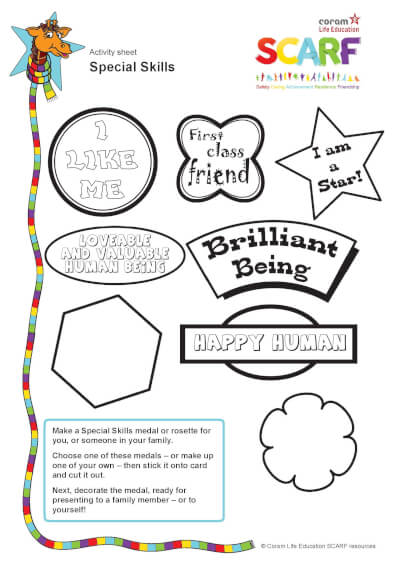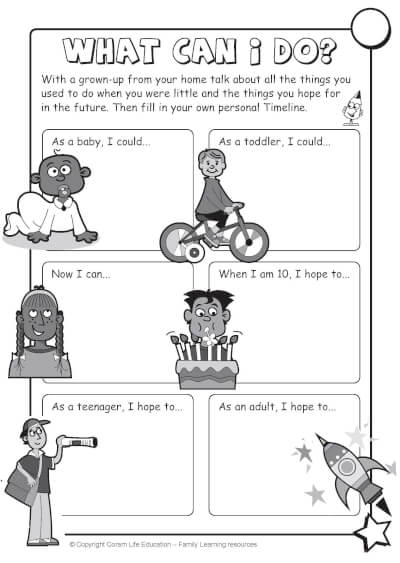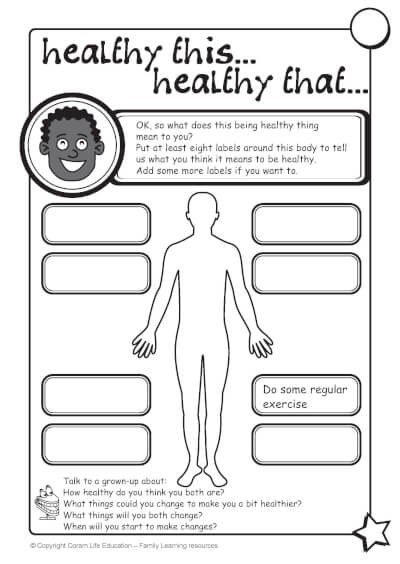Being my Best - 7 to 9 year-olds
What your child will be learning about…
- Developing a positive attitude to learning and building a growth mindset.
- Developing a wider range of strategies to help them bounce back when things go wrong.
- Different aspects of physical health - and how they can help themselves to keep healthy.
What your child can think about, or for you to talk about together…
Growth Mindset (for activities 1 and 2)
- What sort of things can you do now that you couldn’t when you were younger?
- Was it always easy to learn to do those things?
- What did you have to do in order to make it easier? (Keep practising, not give up, try to learn from mistakes, get ideas or help from other people etc.)
- What would you like to improve at?
Keeping healthy (for activities 3 and 4)
- What different things can help you to keep healthy?
- How many different things can you think of?
- How does daily exercise help us to be healthy?
What your child can do - together with you, or independently...
Activity 1 - Celebrating my special skills!
Start by thinking about things you're good at - your skills! Remember... most skills come from a person working hard at something, from practising it over and over again. If there's an adult at home who's not busy, talk about the things you're good at - you could even name each other's special skills.
Now it's time to celebrate these skills!
Using the activity sheet below, make some Celebration Badges for yourself and for other people in your family. If you don't have a printer, you can copy the designs onto some card (maybe an old cereal packet?) Then decorate them and present them to someone at home - and to yourself!

Activity 2 - What can I do?
People who are really good at sport, for example, have had to work hard to be that good! They've spent hours and hours sticking at something (practising and persevering). In fact perseverance and practice are probably more important than natural talent when it comes to being good at something!
Have a look at the picture of the Learning Line below. You may have seen this before at school and may remember it.
Next, think about the things you can do now, that you had to practise and make a list of these things. Here are some examples to get you started...
- Using a knife and fork
- Learning to read and write
- Riding a bike
- Catching a ball
And these are things you will get even better at as you get older!
Here's an activity to help you remember how much progress you've already made in your life! It's important to celebrate small successes when we're learning new skills! These are the stepping stones to bigger progress. Print this activity sheet if you have a printer. If not, you can make a copy of it on some paper. Then fill in the boxes. Congratulate yourself on the progress you've made and think about things you'd like to do in the future. What will you need to do to achieve your goals?

Activity 3 - Healthy me!
We hear lots of things about how we can keep healthy. Most of these are quite simple, like doing about an hour of exercise (for children your age!) most days and eating plenty of fruit and veg!
Here's an activity to get you thinking about what you already do to keep healthy and about what you could change, to make you even healthier!
If there's a grown-up who's not too busy, talk about this together - maybe even set some goals for keeping healthy together!

Activity 4 - Get active!
If possible try some of these ways of getting active (from the NHS Change 4 Life website). You'll find lots of ideas that you can do with family members - or change them a bit to do by yourself, if everyone is busy! Remember - keeping physically fit helps your brain to be fit, too!
SCARF values I thought about...
Which of the SCARF values did the activities include?
You can point to these, or if you're making a SCARF journal you can write them down and tick those you did. There's no right or wrong answer! It's up to you to decide!
Safety
Caring
Achievement
Resilience
Friendship
About SCARF at Home activities
Information for parents and carers before you start using the SCARF at Home activities
Your child's school is sharing some activities with you to help keep children happy and healthy while they're at home. The activities support children's PSHE (Personal, Social, Health and Economic) education and have been provided by the UK's largest children's charity specialising in children's health and wellbeing, Coram Life Education and SCARF.
Coram Life Education and SCARF help schools to teach children valuable life skills needed to keep them happy, healthy and safe.

